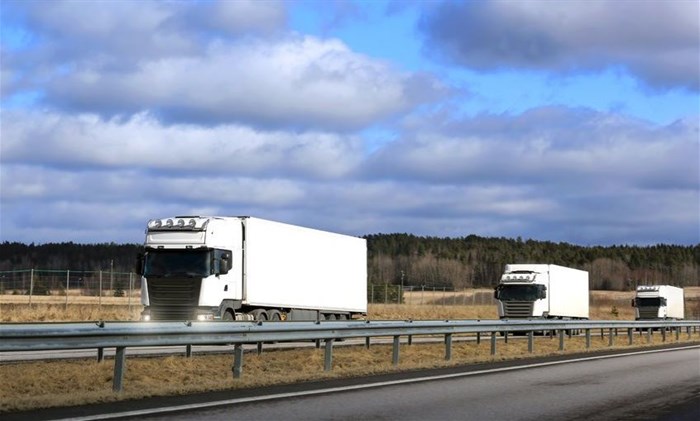
Top stories






More news









Logistics & Transport
Uganda plans new rail link to Tanzania for mineral export boost















In so doing, business analyst Dr Lee-Ann Terblanche believes that it’s possible to reduce carbon emissions by as much as 46%. Yet before this journey can be undertaken, it’s necessary for each business in the industry to accurately quantify and visualise their footprint in order to identify carbon output offset and reduction opportunities.
Road transport is a major source of air pollution that harms human health and the environment. Vehicles emit a range of pollutants including nitrogen oxides (NOx) and particulate matter (PM). In addition to vehicle emissions, household fuels, oil refineries, cement producers and coal mining are also significant contributors to air pollution.
It has been estimated by the World Health Organisation that air pollution results in 20,000 deaths a year in South Africa alone. Scary numbers. What’s even scarier is the fact that we are considered the world's 14th largest emitter of greenhouse gases (GHGs) and while the majority of our CO2 emissions result from our over-reliance on coal, the road freight industry has a lot to answer for.
By implementing a framework of decarbonisation, companies can visualise carbon footprint, monitor and manage the effectiveness of interventions and reduce their carbon emissions and save nearly R1.5billion on carbon taxes in South Africa. However, in order to start reducing carbon emissions, logistics and freight companies first need to know what their output on Greenhouse Gas (GHS) emissions are in order to put a plan of action together. Yet this can be a difficult and complicated task.
In case freight and logistics companies were tempted to disregard their environmental responsibilities, the South African government has implemented the Carbon Tax Act which levies a charge on carbon-heavy businesses. This seeks to incentivise reluctant industries to implement measures that will reduce their carbon footprint in order to reduce their carbon tax liability.
Although the carbon tax filing and payment deadline has been extended for three months in an effort to stabilise the economy, the tax will still be enforced going forward. Non-compliance is an issue that the South African Revenue Service will not take lightly.
To reduce the administrative burden of calculating their tax liability and visualising their carbon footprint, transport industry players should be smart about their use of technology in achieving their objectives. Carbon tax analytics tools are indispensable in accurately assessing tax liability based on the organisation’s carbon footprint.
These tools provide a detailed visualisation of emission sources. Using an analytics-driven calculator, businesses can upload their process or emissions data in order to obtain a clear overview of their carbon footprint, and an accurate assessment of their liability, taking into account offset discounts.
With exorbitantly high emission levels equivalent to 16.8 million tonnes, research has shown that this can be almost halved through the implementation of a decarbonisation plan. This is an opportunity for businesses to shake the business-as-usual mindset.
Given the gravity of the climate crisis we’re trying to avert, change is unavoidable and must be embraced instead. Not only will decarbonisation strategies improve the environmental efficiency of each business, but it’s also an opportunity to improve operational efficacy and to investigate outdated business practices.
While this might be costly to achieve in the short term, the risk and cost of doing nothing is far higher. The benefits of environmental and operational efficiency will ultimately have a positive effect on profitability and business sustainability in the form of lowered costs and enhanced productivity, essentially achieving more with less.